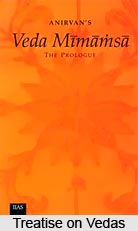 The fact that they are the source of earliest human awareness signifies the importance of Veda. No school of thought has disputed Vedas as a great source of knowledge. Several aspects of Vedas are important to the development of ancient Indian civilization. The concept of almighty God nature and other deities have been given importance in this text.
The fact that they are the source of earliest human awareness signifies the importance of Veda. No school of thought has disputed Vedas as a great source of knowledge. Several aspects of Vedas are important to the development of ancient Indian civilization. The concept of almighty God nature and other deities have been given importance in this text.
Vedas help to respect various celestial objects as well as illustrates notable awareness of human dependence on nature. In other Vedas as well as Upanishads, matters pertaining to human society and social norms and values are dealt with extensively, including those within the family.
As Vedas were communicated by god it reflects that it is an evolution from the awareness about one self and the universe. Vedas contain codes of righteous conduct. The Vedas help build moral integrity and norms that are applicable in the present world too. They also deal with ceremonial acts. Vedas have adopted a humanistic approach to abstract and difficult subjects. Social, political and economic problems have been taken vividly described by the Vedas. The Vedapurva section contains the Karma kanda and upasana kanda. Karma Kanda eliminates the impurities of mind. Upasana Kanda helps one to attain single-pointedness.
The Vedanta comprises of jnana kanda and upanishads that are meant to be learnt when one becomes mature. The Vedas also advocates the theory of Unity in diversity. Man`s mind, his needs, aspirations, urge for peace have been mentioned in the Vedas.
This article is a stub. You can enrich by adding more information to it. Send your Write Up to content@indianetzone.com













